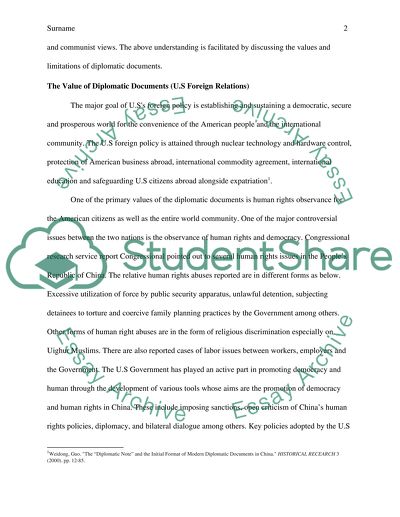Cite this document
(The Value and Limitations of Diplomatic Documents Essay Example | Topics and Well Written Essays - 2500 words, n.d.)
The Value and Limitations of Diplomatic Documents Essay Example | Topics and Well Written Essays - 2500 words. https://studentshare.org/history/1688512-the-value-and-limitations-of-diplomatic-documents
The Value and Limitations of Diplomatic Documents Essay Example | Topics and Well Written Essays - 2500 words. https://studentshare.org/history/1688512-the-value-and-limitations-of-diplomatic-documents
(The Value and Limitations of Diplomatic Documents Essay Example | Topics and Well Written Essays - 2500 Words)
The Value and Limitations of Diplomatic Documents Essay Example | Topics and Well Written Essays - 2500 Words. https://studentshare.org/history/1688512-the-value-and-limitations-of-diplomatic-documents.
The Value and Limitations of Diplomatic Documents Essay Example | Topics and Well Written Essays - 2500 Words. https://studentshare.org/history/1688512-the-value-and-limitations-of-diplomatic-documents.
“The Value and Limitations of Diplomatic Documents Essay Example | Topics and Well Written Essays - 2500 Words”. https://studentshare.org/history/1688512-the-value-and-limitations-of-diplomatic-documents.


